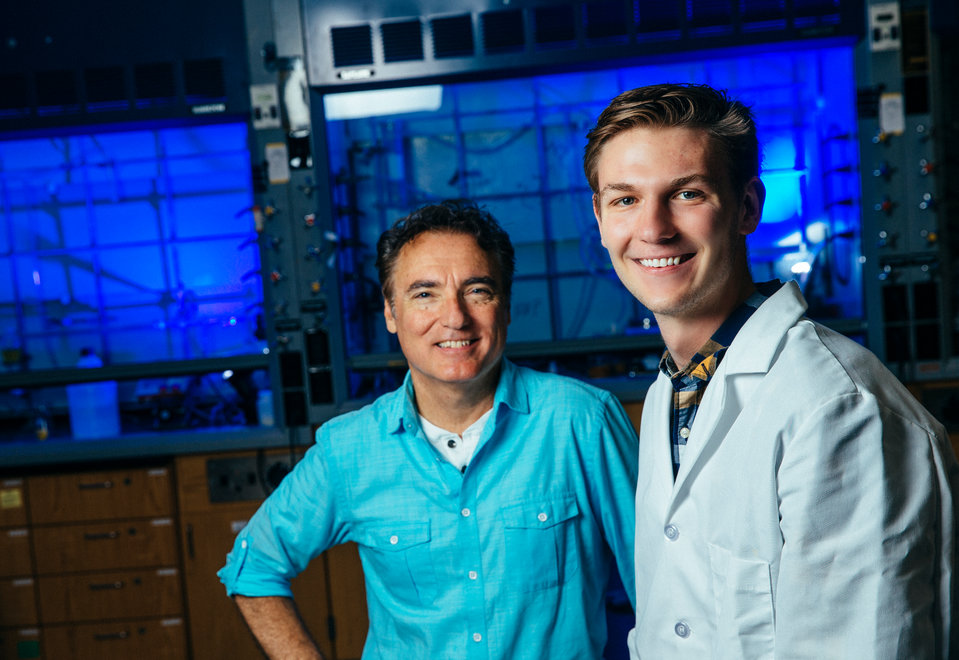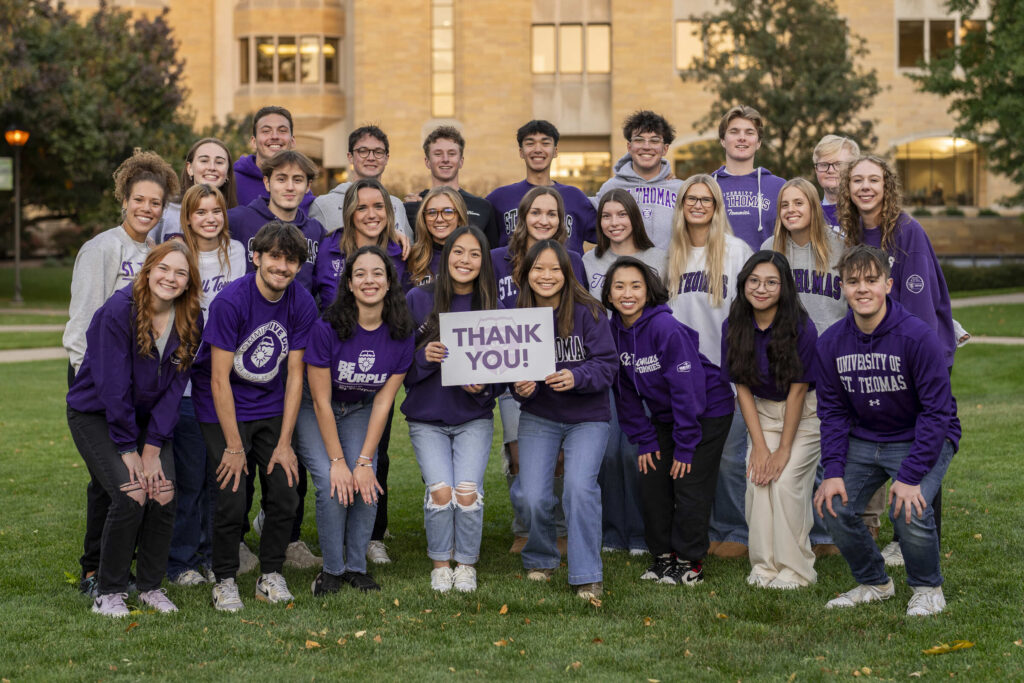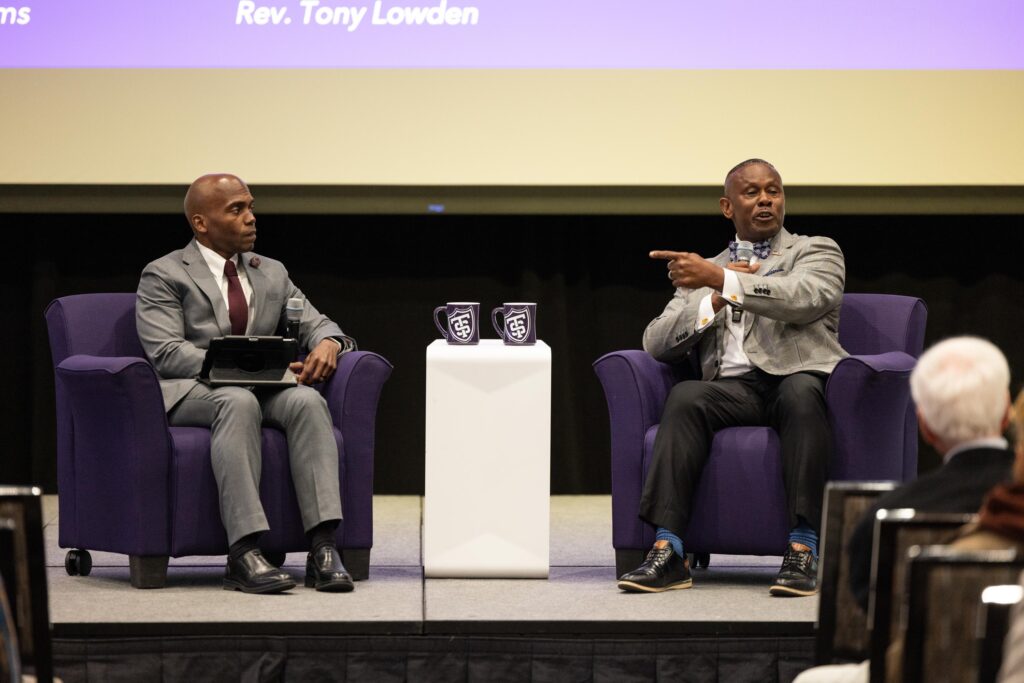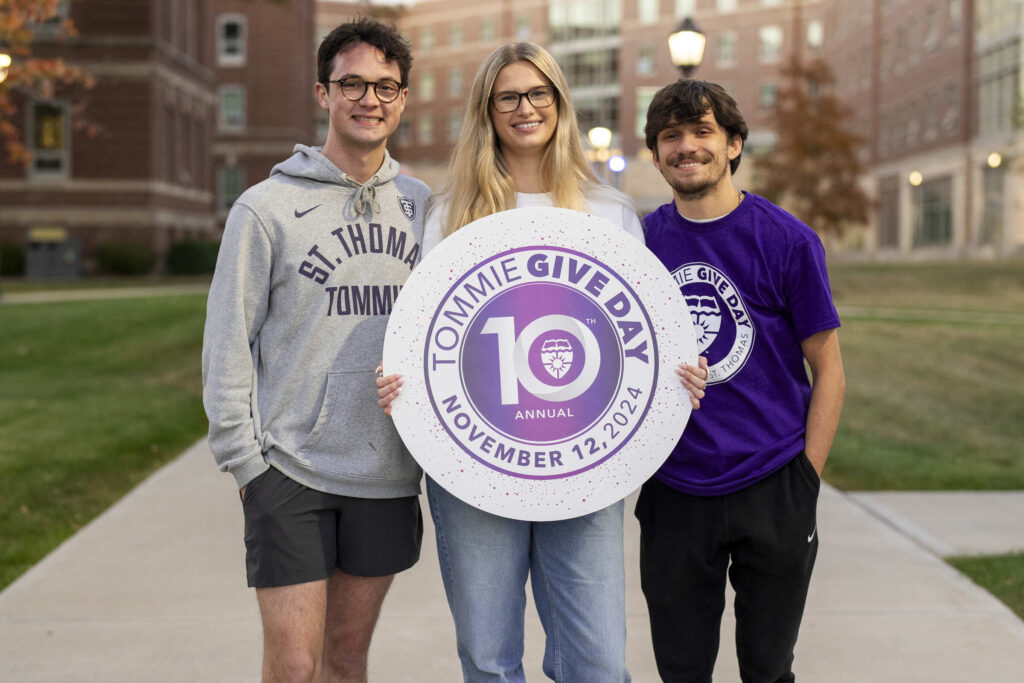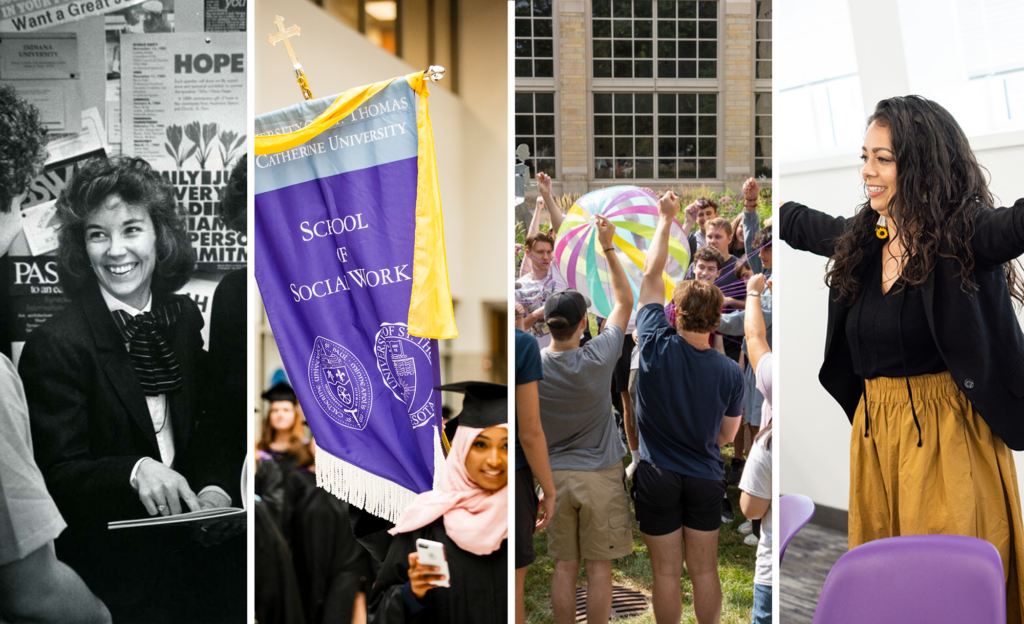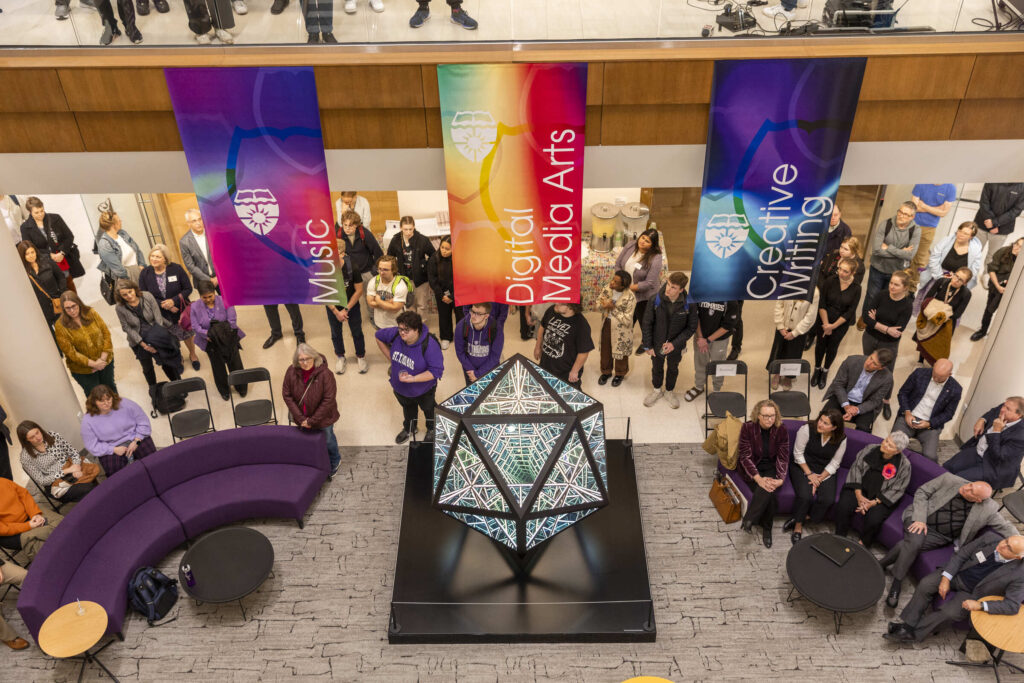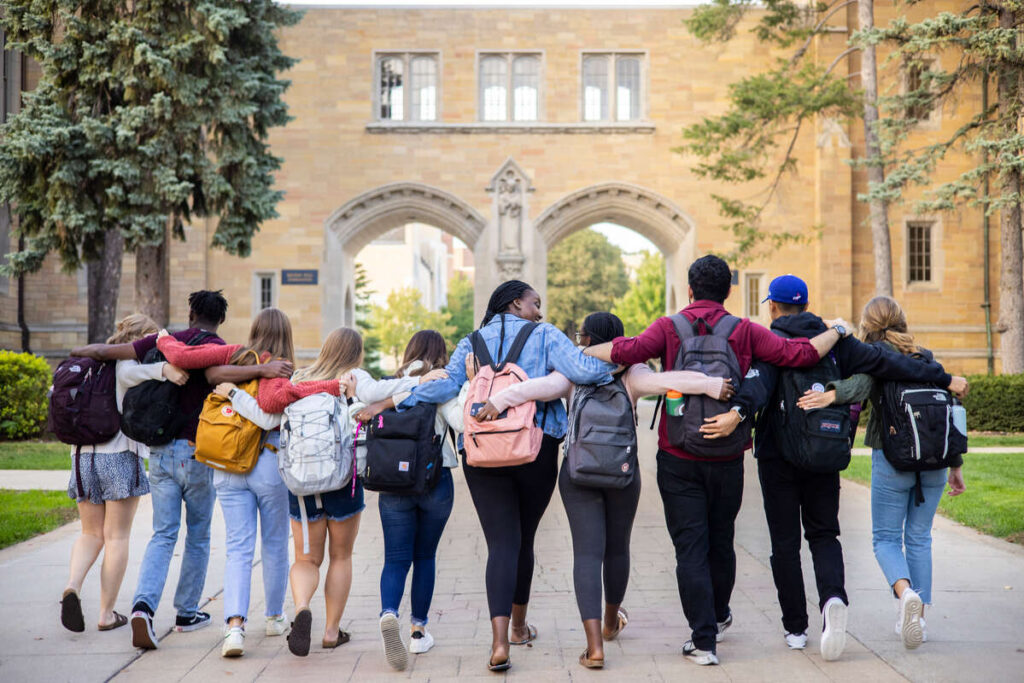Tyler Ogorek is doing research this summer that may one day be used to treat tuberculosis and save lives. Ogorek, a senior biochemistry major, is working on compounds to help fight bacterial diseases that are becoming resistant to antibiotics such as penicillin.
Chemistry professor Tom Ippoliti has led this research since 2008, and Ogorek is one of 12 St. Thomas students working in Ippoliti’s lab this summer.
Bacteria resisting the antibacterials used to treat them is a problem in the pharmaceutical world. Tuberculosis, a bacterial disease that affects the lungs, is still one of the deadliest diseases in the world, killing approximately 1.2 million people each year, and has remained so recently because of its evolution of resistance to drug treatment.
Ippoliti originally began work on this problem after hearing a former student who was working for a pharmaceutical company talk about oxazolidinones, a class of compounds that inhibits the growth of bacteria. Ippoliti thought if he made a change to the structure of the compound he could make it work better.
He was right.
That initial thought has grown across the years, including a collaboration with Johns Hopkins University. Students like Ogorek make derivatives of the molecule, working to increase its ability to act in the body. After the molecules are synthesized they are sent to Johns Hopkins to be tested against dangerous bacteria like tuberculosis, which labs need clearance to handle.
“Normally you can’t test for bugs that are so dangerous, and so we’re very fortunate to be able to collaborate with a lab that has high-security clearances,” Ippoliti said.
There is also growing potential for a viable product that can go to market.
“We’ve identified several that don’t work, and that’s almost as important as the finding ones that do work, because it guides us on what structures we should be working on,” Ippoliti said.
The plan this summer is to synthesize six new compounds. Ippoliti expects Ogorek, who has worked on the project since January 2016, will likely complete three this summer. Ogorek is also working on the project as part of a Young Scholars Grant.
 Teaching students to attain their goals
Teaching students to attain their goals
Contributing to relevant research was one of Ogorek’s draws to St. Thomas.
“St. Thomas has what I guess you could call a pledge that you get into research by sophomore year if you want to,” Ogorek said. “I wanted to come to a place where they would really support undergraduate research and I honestly could not be happier with the department.”
He said researching on a project such as Ippoliti’s means learning in a hands-on way and finding why something does or does not work.
“We’re learning how to properly handle ourselves with these really dangerous compounds,” said Ogorek, who emphasized that rigorous safety is also an important part of the learning experience.
While Ogorek entered St. Thomas planning to go to medical school, his research experience helped him hone what he wants to do after graduating.
“It suits me better to be working in a lab” and working on creating medicine rather than to be the one prescribing it, Ogorek said. “I feel like I can also make a bigger difference.”
Ippoliti said after doing research on this project students can easily continue their education or career paths.
“It’s very easy for them to get into graduate school after doing work on these types of compounds because they’re so synthetically challenging,” Ippoliti said. Students of his have gone onto Johns Hopkins, California Institute of Technology and Yale.
“Our goal is to really help society and do something useful,” Ippoliti said. “The other primary goal is to train students in how to do chemistry research and help them attain their goals.”
